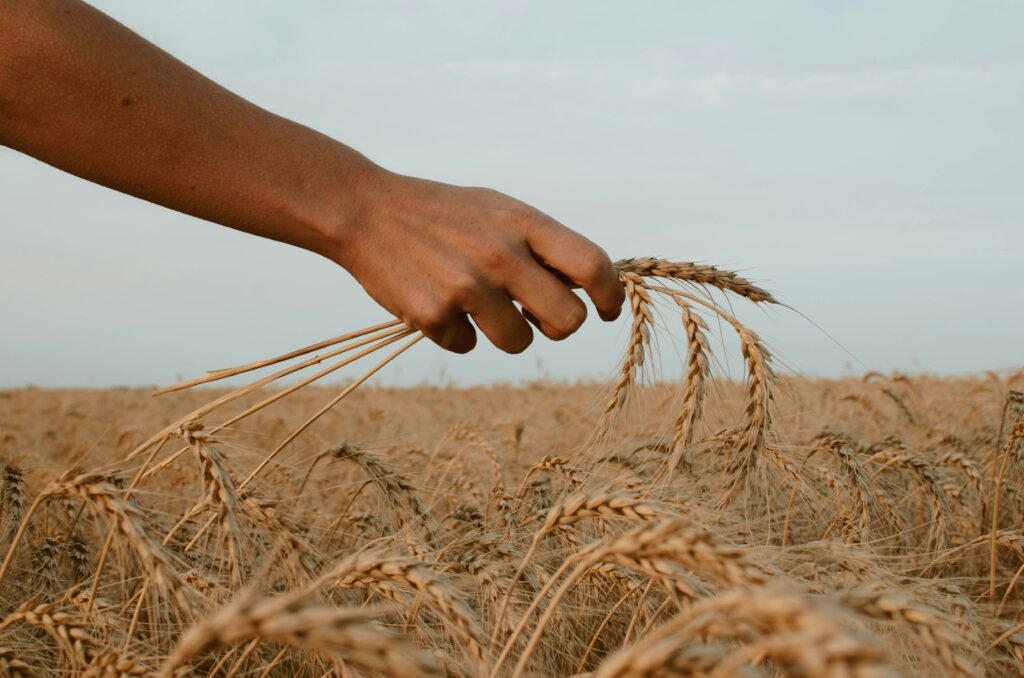
Somewhere along the road, Naomi breaks her silence. She says, “Our hope is in family. My family, my hope, is in Bethlehem; yours is here in Moab. May Yahweh deal kindly with you—may he show you lovingkindness, covenant loyalty—even in the land of Chemosh! May he be loyal to you as you have been to my sons” (Ru 1.8-9)
These Moabite women will not be welcome in Israel, will they? The history of the Moabites and the Israelites has not been friendly:
- Moab was the son produced by Lot’s incestuous relationship with his elder daughter (Ge 19.33-37);
- The Moabite king, Balak, had refused to allow Israel to pass through his land on the way to Canaan, and had even hired Balaam to curse them (Nu 22.1-8);
- Moabites had seduced Israel to Baal worship (Nu 25.1-3);
- The Mosaic Law decreed that no Moabite could enter the assembly of Yahweh (Dt 23.3-4). Moses said, “You shall not seek their peace or their prosperity all your days forever” (Dt 23.6).
So Naomi, genuinely seeking the best outcome for her Moabite daughters-in-law, thinks, “Perhaps you can find another husband—you’ve been good wives (Ru 1.8)—and then you’ll be secure.”
They resist. They love Naomi, and they want to stay with her (Ru 1.10).
Her tone turns desperate. “I have no sons in my guts,” she says (Ru 1.11). (This is not the typical Hebrew word for “womb.”) “You won’t find a husband in me; God has dealt bitterly with me (Ru 1.13). Look at the emptiness of my life! God has not been good to me.”
So Orpah does the sensible thing. With Naomi’s apparent approval, Orpah returns to her people, and to her gods—back to the land of Chemosh.
But Ruth is not Orpah. She shows loyal, covenant love to her dear mother-in-law. Ruth the Moabite seeks the family of the Jewish widow, who can promise her nothing. “The reference to burial with Naomi indicates she considers herself a part of Naomi’s family and is determined to be buried in the same family tomb” (NAC).
And she seeks the Jewish widow’s God (Ru 1.16). Like the Canaanite Rahab before her, Ruth believes in the God of Israel. She even seals her covenant with the covenant name of YHWH (Ru 1.17).
“How much she knew about the implications of claiming Yahweh as one’s God we do not know. She had indeed been observing Naomi for more than a decade, but from what we have seen of [Naomi] in this chapter she hardly qualified to be a missionary of orthodox Yahwistic faith and theology” (NAC). Has Naomi given Ruth any reason to see YHWH as good and gracious?
Faith and faithfulness have always delivered Israel from judgment and brought God’s abundant provision. Will a Moabite woman’s faithfulness do the same? God has promised to bless all nations through Abraham; will He bless Abraham through the faith of a woman from another nation? And from Moab, at that?
It’s a long, steep, exhausting climb out of the Jordan Valley to Bethlehem. You and I probably wouldn’t make it. And there are robbers in the wilderness, who would not be chivalrous to two women traveling without male escort.
When she arrives—finally!—in her hometown, she sets it abuzz. Her old friends recognize her—they think—but Naomi doesn’t look like the woman who left so long ago. “Can this be Naomi?!” (Ru 1.19). She has changed significantly, and not for the better. The years of sorrow have aged her body, and they have aged her spirit.
“Look what Israel’s God has done to me. Don’t call me ‘Pleasant’ (Naomi) any more. I am a different person now” (Ru 1.21). Naomi is certain that God is great, but she’s not so sure that he is good.
But calamity does not always mean judgment. God has not forgotten Naomi. He has removed the famine; crops are growing again.
As the Master of time and seasons, Israel’s God has led Naomi back to her people in barley harvest (March/April), just as the House of Bread is to be filled with bread (Ru 1.22).
And with much, much more.
Photo by Paz Arando on Unsplash

Leave a reply. Keep it clean.